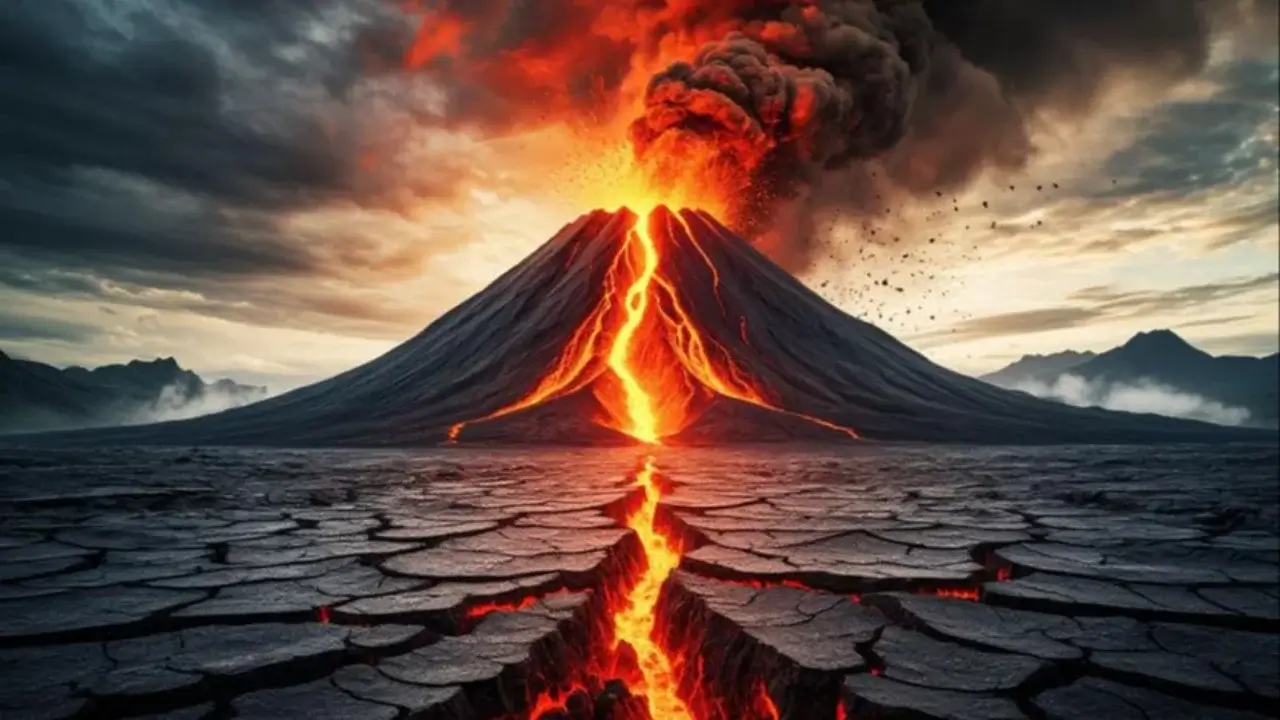Five Threats More Dangerous to Humanity Than Nuclear War

Nuclear war is considered a great disaster for humanity, but according to scientists, there are even greater threats on Earth. These threats are not just from science fiction, but are based on scientists' reports and historical research. Some of them can pose a great danger to humanity on a global scale.
Supervolcano — A Great Danger Beneath the Earth
Everyone knows what a "volcano" is, but a supervolcano is a completely different matter. This is not just a mountain with a crater, but a whole underground system capable of splitting a continent. For example, the Yellowstone volcano in the USA hides a reservoir of water with a volume of thousands of cubic kilometers. According to scientists, an eruption of such a volcano could dry out the surrounding areas and cause global cooling.
The Danger of an Asteroid Strike
Earth constantly collides with space debris. Most of these fragments burn in the atmosphere, creating meteors. However, there is a threat of a larger "guest" coming.
66 million years ago, the giant Chicxulub asteroid hit the Yucatan Peninsula. The shockwave caused earthquakes, fires, and tsunamis. Tons of dust were lifted into the atmosphere, blocking the Sun for years. This led to the extinction of the dinosaurs.
Modern astronomers track "potentially hazardous objects". NASA and ESA are developing early detection programs, and recently they even tested the DART mission — for the first time in history, humans attempted to change the trajectory of an asteroid. But all this is just a reminder: space is unpredictable, and at any moment, it could bring a stone that can wipe out cities faster than we can map them.
The Risk of a New Pandemic
The 21st century has already shown how viruses can paralyze the planet. Due to COVID-19, flights were halted for months, borders were closed, and huge economic losses were incurred.
The threat is linked to viruses like Ebola or avian flu, which can be extremely dangerous. So far, they haven't spread widely because of their speed — the infected die before they can infect thousands of others. But one day, a strain combining the contagiousness of COVID-19 and the lethality of Ebola may appear, and its consequences will be catastrophic.
Another threat is bioengineering. Modern technologies allow pathogens to be altered in laboratories. Scientists are seriously discussing this: a mistake or misuse could result in a virus that humanity cannot defend against.
Global Climate Change
Catastrophic events on Earth may not happen with explosions in the sky, but slowly, through droughts, storms, and melting glaciers. The climate is changing, and this is no longer a prediction, but a fact confirmed by global observations.
Since the beginning of the industrial era, the Earth's average temperature has risen by about 1.2 degrees. This causes a chain reaction: Greenland and Antarctic ice sheets are melting, sea levels are rising, and entire regions are becoming uninhabitable.
Scientists are worried about so-called "tipping points." For example, the shutdown of the Gulf Stream, which regulates Europe's climate, or the release of methane from the Siberian permafrost. If these processes begin, they will be irreversible, and the planet will change beyond recognition.
Artificial Intelligence and Technological Threats
Technology makes life more convenient, but it also brings new types of threats. Today, artificial intelligence is already writing texts, controlling drones, and analyzing data faster than humans. So far, this is helpful. But scientists are debating what will happen if it becomes a "player" with its own goals.
Stephen Hawking warned that if artificial intelligence goes out of control, humanity will not be able to compete. Elon Musk also said that uncontrolled artificial intelligence could be even more dangerous than nuclear weapons. Although this may seem like a science fiction scenario, its likelihood forces us to think.
Cyberattacks and Infrastructure Threats
The world has become overly dependent on technology, and cyberattacks can destroy global infrastructures. Imagine a disruption in medicine, transportation, or military infrastructure! The world is too dependent on technology, and this dependence may one day turn against us, as reported by ixbt.com.
Read “Zamin” on Telegram!




















